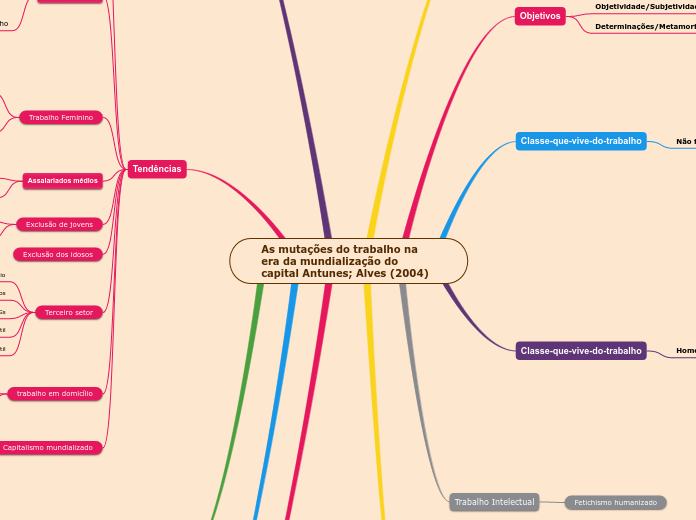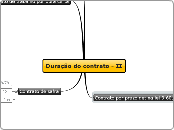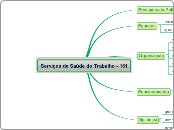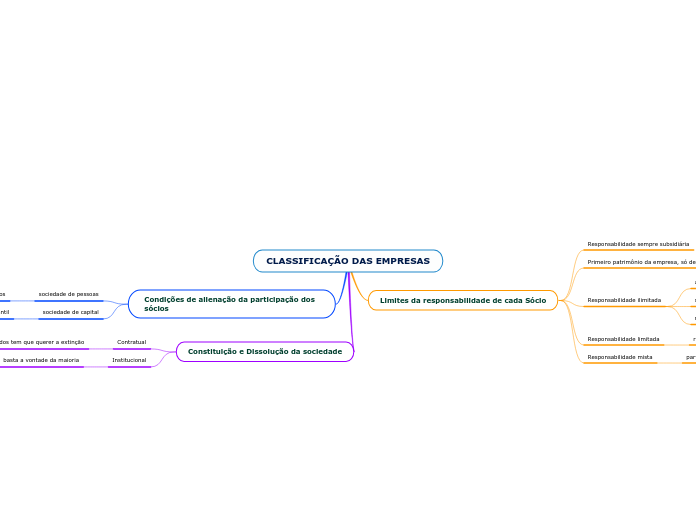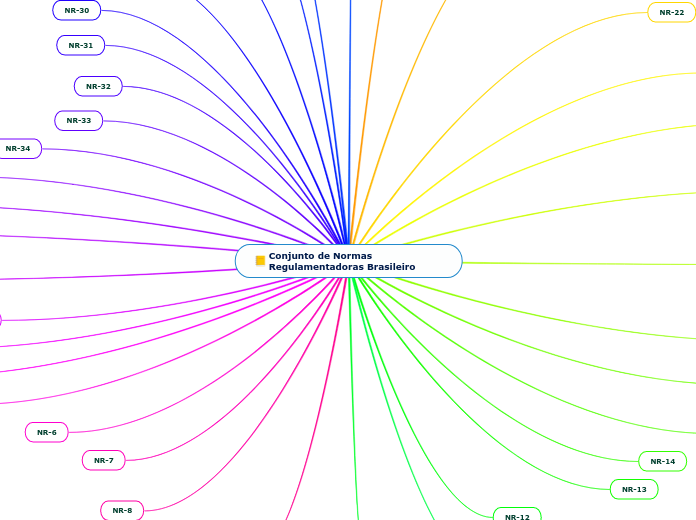As mutações do trabalho na era da mundialização do capital Antunes; Alves (2004)
Type in the name of the book you have read.
Apesar de subordinar-se ao capital
Conflitos/oposições
Permanente medição de forças
Elemento vivo
Estranhamento/Alienação
Perda da própria unidade
Vida pública e vida privada
Meios e fins
Trabalho e laze
Trabalhos precarizados
Perda de humanidade
Capitalismo manipulatório
Preparação
Qualificação
Interação
Máquina
Homem
Apropriar-se
Cognitivas
Intelectual
Captura integral da subjetividade
Real
Tendências
Type the main events of the book, classifying them in: events from the beginning, events from the middle, and events from the end of the book.
Describe the story visually. Add a representative picture for each of them.
Capitalismo mundializado
Estratificação/Fragmentação
Transnacionalização do capital
trabalho em domicílio
Exploração (feminina)
Teleinformática
Microeletrônica
Informação
Terceiro setor
Sentido social e útil
Atua à margem da lógica mercantil
ONGs
Retração do trabalho industrial e de serviços
Comunitário
Trabalho voluntário
Exclusão dos idosos
Exclusão de jovens
Trabalhos precários
Assalariados médios
Aumento da sindicalização
Setor de serviços
Type the main events from the end.
Add a representative picture for each of them.
Trabalho Feminino
Menor qualificação
Indígenas
Negras
Imigrantes
Salários baixos
Desestruturação
Informal
Terceirizado
Temporário
Parcial
Desemprego
Walfare State
Subcontratados/Part-time
Type the main events from the middle.
Add a representative picture for each of them.
Formas desregulamentadas de trabalho
Diminuição do proletariado especializado
Type the main events from the beginning.
Add a representative picture for each of them.
Mundialização do capital
Fetiche
Subtópico
Consumo de mercadorias
Reprodução societal
Redução e precarização
Condições de trabalho
Desemprego estrutural
Take notes while you read the book. Write here your favorite quotes from the book.
Desumanização
Explosão social
Guetos
Criminalidade
Isolamento
Expulsos do mundo do trbalho
Trabalho Intelectual
Fetichismo humanizado
Homens e Mulheres
The main idea is what the book is mostly about.
Some tips to find out the main idea of a book easier:
- Read the title.
- Look for the text features.
- Figure out if you are reading a fiction or a non fiction book.
- Think about some examples that support this idea.
Desempregados
De serviços
Fabril
Moderno
Part-time
Precarizado
Improdutivos
Produtivo
Industrial
Coletivo
Sociais
Manuais diretos
Classe-que-vive-do-trabalho
Type the names of the book characters. Start with the main character.
Draw arrows to represent the relationship between them and if it is possible write on them what they represent for each other (if they are relatives, friends, lovers, enemies etc.)
Não fazem parte
Especulações
Juros
Pequena Burguesia
Rural
Urbana
Pequenos empresários
Gestores do capital
What are the characteristics that best describe the character? Type them here.
Objetivos
What is the reason why the author wrote the book?
Determinações/Metamorfoses
Objetividade/Subjetividade
Subsunção
Who is the author of the book? Type in his/her name.
Toyotismo
Controle do trabalho
Consentimento operário
Fábrica racionalizada
Taylorismo/Fordismo
Formal
Relação
Capital
Trabalho
